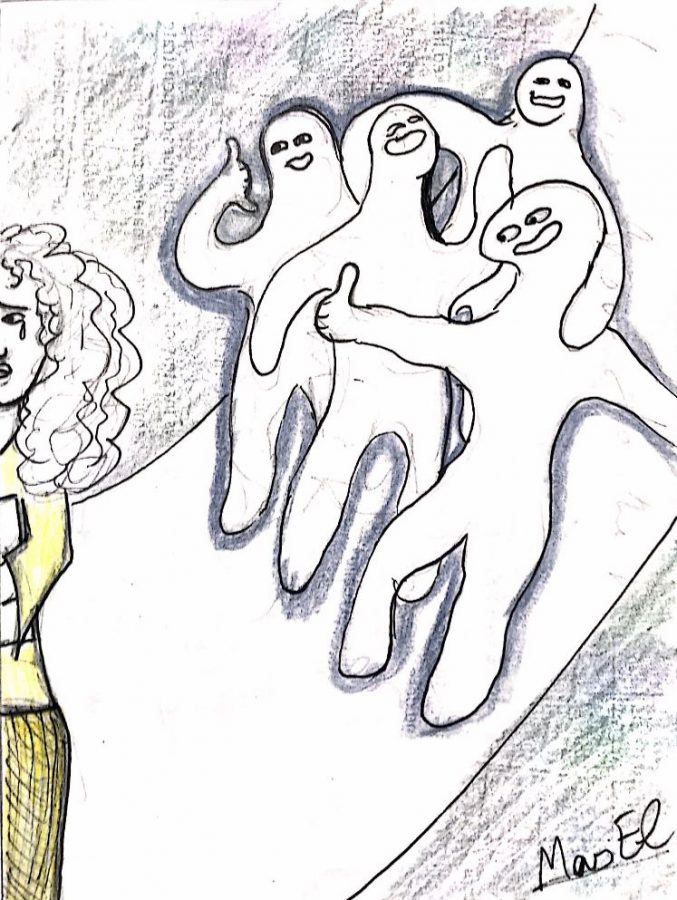Many women come across “catcalling” without even knowing what it is.
Imagine being a young female student walking down the street when all of a sudden you hear a whistle from a man walking past or a passenger in a car driving by.
This is catcalling, and it happens to women so frequently that most of them now simply are immune to it. However, the fact remains that whistling at a stranger is simply wrong and insulting.
Over the years, I have come across many opinions on this subject. Some people believe that this is just a natural manifestation of attention and there is nothing special about it, while others think that it is wrong and unjustifiable behavior.
Personally, I believe that this behavior is an echo of deep-rooted stereotypes of masculinity and is undoubtedly a form of harassment.
I often don’t want to leave my home because of catcalling. It doesn’t even matter what we wear; men think they are somehow entitled to our attention so they go on to pester us with their unsolicited advances.
The Target store where I grocery shop is just across the street from my apartment, it’s a short walk I used to often take.
I usually prefer walking as opposed to driving but this walks often turns into a nightmare for me.
I noticed that it’s become increasingly easier to drive rather than walk because I don’t want to hear whistles in my direction.
It seems to me there has not even been a day when a man has not whistled at me for no reason.
Sometimes, it goes even beyond whistling. I’ve heard men say things to me like, “Hey baby, what’s your phone number?”
I do not dress provocatively, but my looks somehow attract men’s attention anyway and I am sure that many women face the same issue.
So, what can we do to feel more comfortable in situations like that?
We should speak up and defend our boundaries and personal space if a man gets too close. We need to say that we do not like it or just move away.
As women we become threatened and gripped by fear in moments like that, which is understandable; but if we can’t stand up for ourselves it projects that such behavior is encouraged.
Now, these are all possible solutions to the problem, but it will not fix the issue completely. Solving the problem at a global level will require a concerted effort within families.
More often than not, children learn from their parents and follow their example.
Mothers should instill in their sons the utmost respect for women. Additionally, it is important that fathers also participate in their children’s upbringing and set a positive example.
One example of cultural impact was portrayed in a video on a YouTube channel, filmed by a viral video agency “Robb Bliss Creative” as a social experiment.
The girl in the video took a short walk across the streets of New York while wearing a body camera and ended up receiving about 100 comments from different men during that time.
Such inappropriate behavior is normal for men in many cultures and is deeply rooted in the notions of toxic, aggressive masculinity.
In South America, men are often allowed to disrespect women but are typically able to get away with what would be considered openly sexist acts in the Western world.
For example, the top three most dangerous public transportation systems in cases of sexual harassment towards women were in Latin American cities: Bogota, Mexico City and Lima, according to a recent survey by YouGov.
Nothing can truly protect women from catcalling. Even when a woman is raped, she must go out of her way to prove her case by undergoing examinations and fighting to defend her rights.
Even then she can be still be blamed for what happened to her because it turns out that the clothes she was wearing were too revealing, an act known as victim-shaming.
I hope that over time this tendency to whistle at women on the streets will pass. It seems to me that the younger generation is moving further away from old cultural habits, so perhaps this habit will be forgotten over time.
All that remains for me is just to not pay attention to such behavior; I hope that men will continue to learn to respect women and understand that we do not deserve to be disrespected.
I hope that one day I can feel safe again while walking to the Target store just across from my home.













